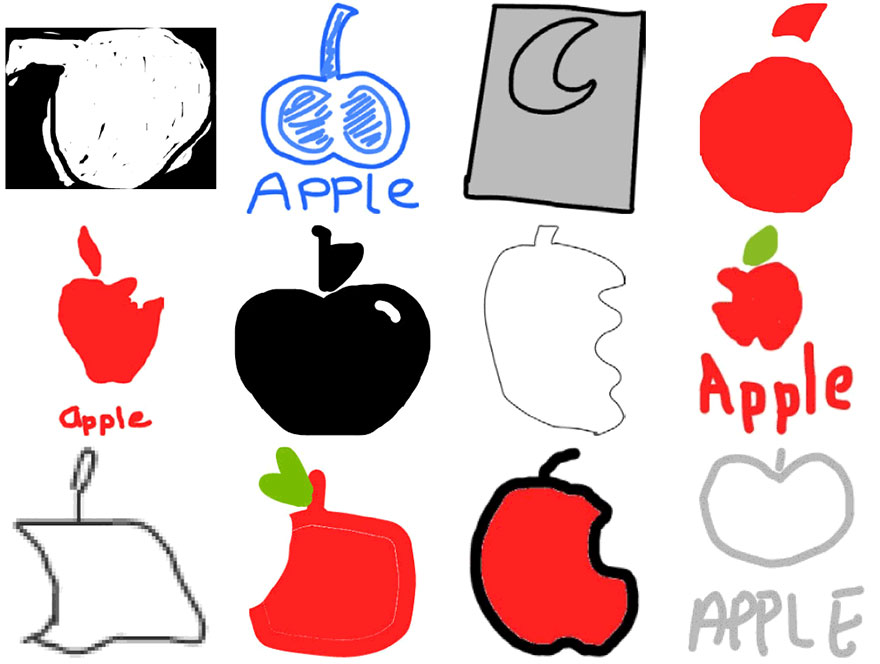Optimize Your Language Learning – Limit Passive Learning Activities

“Repeat after me!”
Repetitio mater studiorum est.
Spending time with my grandfather was always a bit weird. He didn’t want to talk much or play some stupid games. Oh no. He used to sit me in front of him and grill me about different school subjects. Physics. Math. History. But his personal favorite was teaching me Latin proverbs.
Most of them slipped my mind.
But among all those which stuck with me, this is the one I cherish the most:
Repetitio mater studiorum est – repetition is a mother of studying
These four words contain the wealth of wisdom if you only interpret them in the right way.
On the surface, the problem with learning doesn’t seem that complex. As long as you repeat things you want to learn, everything is fine and dandy. But let’s be honest for a second.
How easily can you recall words during conversations in your target language? How often does your mind go blank?
You desperately try to recall the word you need, but there is nothing there — just the depressing nothingness.
Rings true? There you have it!
So the problem might a bit more complicated than we have thought after all. Put on your “learning overalls,” and let’s dig deeper to explain why repetition is not enough.
Let me start with the basics.
Optimize Your Language Learning – Two Kinds Of Repetition
In its most basic form, the repetition can adopt two forms. It can be either:
1) active
2) passive
But what does “passive” mean, especially in the context of language learning?
It means that you don’t engage with the information you receive.
You don’t do it actively (duh). That’s why activities like reading and listening fall into this category. What terrifies me the most is that the default style of learning, for most of the people, is passive learning.
“But why do passive learning activities suck donkey balls?”, you might ask. Let’s get to it.
Why Passive Repetition Sucks and Hinders Your Progress
Before I get to the science, let me tell you about a friend of mine. This story might sound familiar to you. Problems of about 90% of people who write to me fit perfectly into the following scenario.
Anyway. So this friend of mine has been learning Russian for over two years now.
I haven’t heard her talk for a long time, but I thought that her level should be at least decent.
Russian is not that different from Polish, after all. So imagine my surprise when I heard her speak Russian a few weeks ago. She barely scratched the B1 level.
My first reaction? “No, f***ing way.”
She’s been learning systematically for over two years, and she can barely string a sentence together? After some investigation, I got to the bottom of it. Yes, her teacher visited her every week. Yes, they did learn.
Or should I say, “learn”? Because the process they went through barely resembled any real learning. They read some articles together. For an entire hour. Almost no speaking at all. No meaningful conversations. No active learning.
Nada. Null. Nothing.
If at any point while reading this description, you told yourself, “Hey, this is pretty much how my lessons look like!” then run. Run the hell away from your teacher or language school. A visit to a local strip-club seems to be a better investment than this. At least you will know what you pay for.
Optimize Your Language Learning – the Pyramid of Effective Learning
Science is very clear about passive learning. It was proven a long time ago that passive learning has minimal effect on whether the information is later recalled from long-term memory (Craik & Watkins, 1973).
Many other studies have managed to replicate the results of the research mentioned above successfully.
So how does effective learning look like? Take a look at the pyramid of effective learning.
There is a good reason why learning and listening are at the absolute bottom of retention rates.
Effective learning requires , so-called, effortful recall.
This should be the mantra of every learner. If you want to learn fast, you have to take control of your learning. Without it, your learning is like a boat with no sails in the middle of the storm. You go one way and then the other without any sense of direction. That damn boat needs a captain – you that is!
Ok, so what does the effortful recall mean?
It means that the more effort you put into recalling a piece of information or executing a skill, the more this act benefits the learning. (Make it Stick: The Science of Successful Learning by Peter C. Brown, Henry L. Roediger III, and Mark A. McDaniel).
Once again, there are a lot of studies that confirm the effectiveness of active learning. Here are the results of some of the recent findings.
“Tests that require effortful retrieval of information (e.g., short-answer) promote better retention than tests that require recognition (Larsen et al. 2008).”
“Effortful retrieval of information improves recall 1-month later, compared with no test (butler and Roediger 2007).”
It’s worth mentioning that you can mix these strategies. Why not reap the benefits from the synergy effect?
The Effectiveness of Passive Learning
Let’s do some simple math. Considering the said effectiveness of given learning strategies, we might conclude that:
One minute of talking is worth 5-7 minutes of reading/listening (read more about the benefits of talking to yourself).
I know that reading and listening might feel productive, but they are not. These are so-called feel-good activities.
I always shock students of mine by telling them not to listen to anything for the first 8-10 weeks of learning. Instead, I help them concentrate on active learning. Only after this period do they start listening practice. And the gains always amaze them.
There is also a little known consequence of your potential choice of learning strategy. You see, if you don’t learn actively, you automatically condemn yourself to UNINTENTIONAL LEARNING.
*gasp*
What Is Unintentional Learning?

Picture by: Zack Cannon
Now, this is a truly fascinating type of learning.
Unintentional learning takes place when you acquire vocabulary accidentally. It is a by-product of repeating a given piece of information a certain number of times.
It’s worth mentioning that is it also one of the default and (most useless) strategies of almost every language learner.
The body of research shows that you need to repeat a piece of information (unintentionally) between 20 and 50 times to put it into your long-term memory. 20 to 50 times! (one of many sources)
It takes way too much time. And time is the luxury a few of us can afford. Of course, One might argue that 20-50 repetitions are not that many. After all, if you read extensively and listen, you should get to this number of repetitions after some time.
Right? No. Here comes another plot twist.
Unless you learn three thousand words, reading is a very slow and inefficient activity.
And until you reach this number, your odds of learning words contextually are slight. Sure, you can infer the meaning, but there is a good chance that your guess will be incorrect.
And what about rare words which you might find useful?
What If I need to know the word “thimble” because that was my dog’s name, and I feel the need to share it with English speakers? How many thousands pages must I read to stumble across this word, say, ten times? Hell, I don’t remember when was the last time I heard this word in my native tongue!
What about other words like tangs, udder, piston, and so on? I need such words frequently during interpreting or teaching. Relying only on passive learning activities would make me an inefficient teacher/coach/interpreter.
So there you have it. L2 Learners are simply at a disadvantage as for the number of repetitions of words. If you want to optimize your language learning, limiting passive learning activities is one of the first things you should do.
Is Incidental Learning Really That Bad?
No. Of course, it is not. Incidental vocabulary acquisition makes some sense. Maybe even a lot but only on one condition – you already know enough words (and grammar) to learn from context. Typically, that’s about 5000 words for most of the languages. But the problem is to memorize these 5000 words before you run out of motivation!
Read more: The Purpose Of Passive Learning – How And When To Use Reading And Listening To Speed Up Your Progress.
Optimize Your Language Learning – Final Thoughts
As you can see, passive learning activities are a cardinal sin for most language learners. Limiting them is the first step you should take optimize your language learning. The chance is that if you take a good, hard look at your learning schedule, you will discover that they are the culprit, which makes your progress unsatisfying.
They still play an essential role in the learning process, but only if you go through the critical phase of deliberate and active learning.
Done reading? Time to learn!
Reading articles online is a great way to expand your knowledge. However, the sad thing is that after barely 1 day, we tend to forget most of the things we have read.
I am on the mission to change it. I have created flashcards that you can download to truly learn information from this article. It’s enough to download ANKI, and you’re good to go. Memorizing things like “effortful recall”, etc. can be really easy!











 Once you realize it, it should be easier to incorporate active learning into your daily learning schedule.
Once you realize it, it should be easier to incorporate active learning into your daily learning schedule.















































